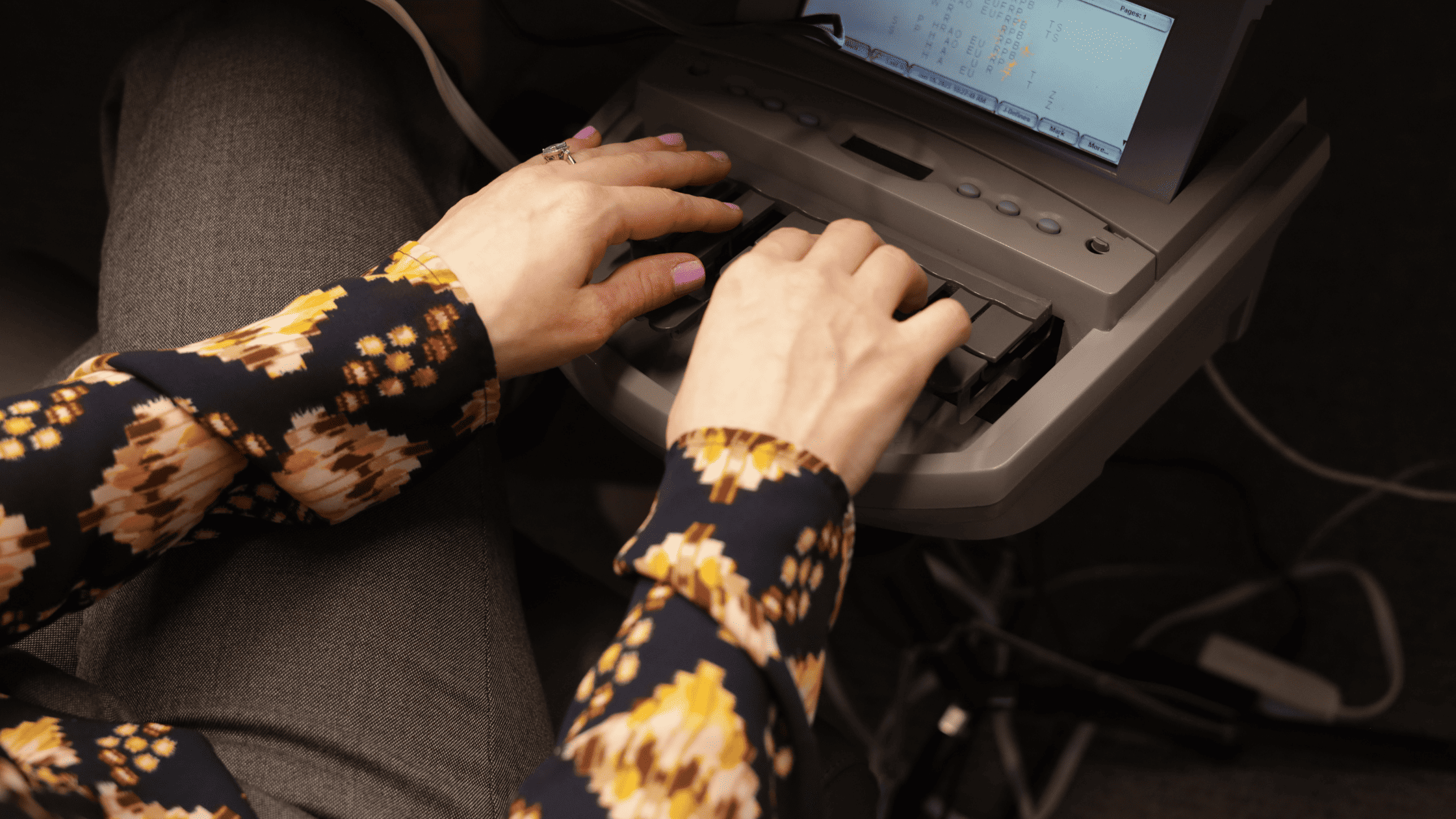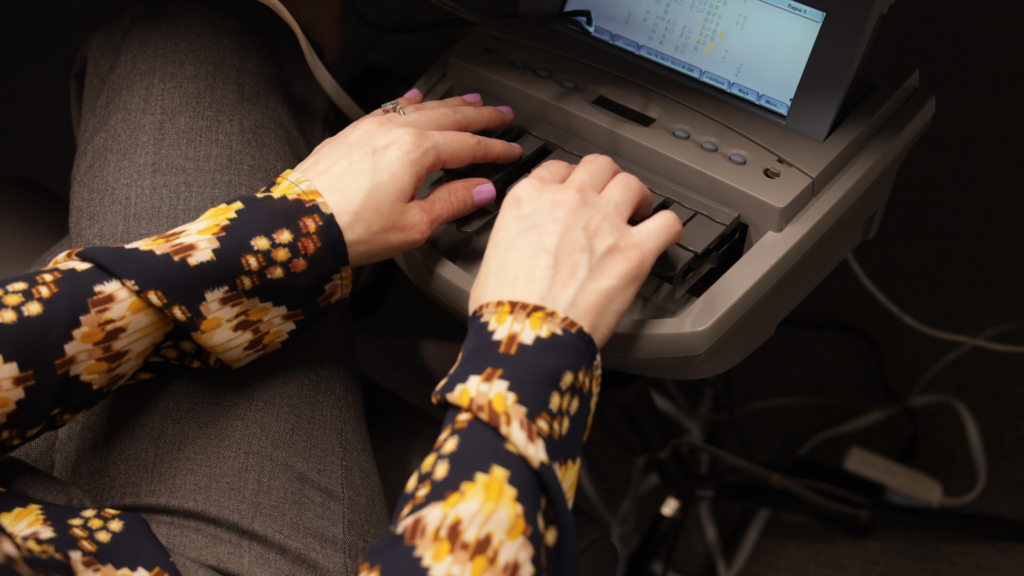In many complex litigation cases, lawyers know that expert witnesses can “make or break” the case. As such, an expert’s deposition is a crucial event in the life of a complex litigation case whether you are presenting the expert witness or opposing. Needless to say, dedicated experienced court reporting is essential to expert witness depositions.
experienced court reporting is essential to expert witness depositions.
In many complex litigation cases, lawyers know that expert witnesses can “make or break” the case. As such, an expert’s deposition is a crucial event in the life of a complex litigation case whether you are presenting the expert witness or opposing. Needless to say, dedicated experienced court reporting is essential to expert witness depositions. If you need court reporting services for your experts, call Elizabeth Gallo Court Reporting, LLC., a top-tier national court reporting service. Our number is (866) 689-1837. We accept orders via email, online, phone and via telefax at (866) 870 – 6032.

Experienced and seasoned court reporting is essential for expert opinion depositions for several reasons. First, expert witnesses tend to use technical and even scientific words, phrasing and language. Technical and scientific language presents unique challenges in terms of hearing, understanding and spelling. The purpose of court reporting is to accurately capture what is being said in real time. But, a good court reporter will “slow down” the testimony to ensure the accuracy of the transcript. Techniques include asking the expert witness to talk slower, to repeat various words and ask for the spelling of technical and/or scientific words. A good court reporter can make notes on a sheet of paper keeping a running list of words and names that should be clarified during breaks or at the end of the deposition.
Court Reporters Can Read the Room.
As indicated, pacing of an expert witness’ testimony during a deposition is important. If the expert talks too fast, it can be difficult to obtain an accurate transcript. Thus, using unobtrusive methods, good court reporters will help control the pacing and flow of the testimony.
Good court reporters are also familiar with some of the unique aspects of expert witness questioning. For example, there can be a lot of repetitive questions since, at an expert deposition, the expert is expected to identify ALL of his or her opinions. Failure to state any and all opinions can result in some opinions being excluded based on the discovery rules of civil procedure. Good expert witness court reporters understand why there is this type of repetitive questioning and that helps ensure the transcript is accurate.
The need to obtain all of the expert’s opinions can also lead to unusually quick, droning, and rote questioning from the lawyers which can be confusing to new and inexperienced court reporters. As an example, in certain types of cases, opinions involve whether the defendant in the case met the applicable standard of care for his or her profession. Thus, in a medical malpractice case involving a surgeon, many questions might begin like this: “Q. Based on your knowledge, training and skills, do you have an opinion about whether the defendant exercised the skill and care ordinarily employed by a reasonably prudent surgeon under the same or similar circumstances with respect to ….?” That is a “mouthful” but good expert witness court reporters understand what is being asked — and why — and that helps ensure the transcript is accurate.
Contact Elizabeth Gallo Court Reporting Today
For more information, call the experienced court reporters at Elizabeth Gallo Court Reporting. We follow the best practices in order to provide excellent litigation support to our customers. Contact us today to learn about our services and how we can help you.






